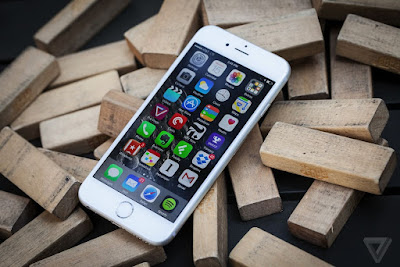1 Billion iPhones Sold...........
Why 1 Billion iPhones Sold Matters
Sales of the iPhone for the current quarter may be down, but sales for the decade are up, way up.
Apple last week announced that it had sold its billionth iPhone, a historic feat for a consumer electronics product from a single vendor.
"We never set out to make the most, but we've always set out to make the best products that make a difference," said Apple CEO Tim Cook.
"iPhone has become one of the most important, world-changing and successful products in history," he added. "It's become more than a constant companion. iPhone is truly an essential part of our daily life and enables much of what we do throughout the day."
The announcement came a day after Apple reported that iPhone sales had slid 15 percent, to US$40.4 million, during the quarter ending June 30, compared with the same period a year ago.
Magic Number
"It's unique when any product sells a billion units," said Kevin Krewell, a principal analyst at Tirias Research.
"The iPhone is not exactly one monolithic product," he told the E-Commerce Times. "It's a family of phones. But we, as humans, seem to like nice, big round numbers."
Apple has demonstrated its marketing chops by selling so many units of a premium product.
"It shows Apple has been able to reach a significant part of the world's population, as many of the older models are passed along to users that can't afford a newer model," Krewell said.
The iPhone is different from many other consumer electronic products because Apple controls both the hardware and the operating system that runs it.
"When you control a product as much as Apple does, it's unusual to have that product sell as much," said Justin Wetherill, president of uBreakiFix.
"It's not unusual for 20 manufacturers to sell a billion Windows devices," he told the E-Commerce Times, "but when you have a billion iPhones running iOS, it's something special.
Keys to Success
Apple sells so many iPhones because it stays close to what its users want, Wetherill noted.
"A lot of times in technology, you have manufacturers chasing specs. You have manufacturers adding features that are for marketing -- not because they're necessary or desired," he said. "Apple has done a great job to this point of identifying what their customers want to do on their phone and giving them the software and hardware to do it."
Apple also has done a good job of creating an ecosystem full of apps from talented developers.
"Developers have been a big part of the smartphone's success," said Ross Rubin, senior director for industry analysis for App Annie.
"The idea of the smartphone is in many ways defined by its ability to be expanded via apps," he told the E-Commerce Times.
Market Growth
Although the latest iPhone sales numbers show a year-over-year decline, that is likely to change.
After 2016, smartphone shipments should grow at a brisk 5 percent a year clip until the end of the decade, noted Anthony Scarsella, the research manager for mobile phones at IDC.
Smartphone shipments will jump from 1.48 billion units in 2016 to 1.84 billion in 2020, he forecasted.
"A strong affinity for the brand and the desire to be a part of the Apple ecosystem still keeps Apple at the top of the market," Scarsella told the E-Commerce Times. "Considering it is the leading revenue driver for Apple compared to other products at the moment, I think over the next four to five years the iPhone will continue to drive sales for Apple."
The iPhone will be the cornerstone of Apple's business for even longer than that, predicted Tim Bajarin, president of Creative Strategies.
"I think the iPhone will continue to be a core product strategic to Apple's future for at least another decade," he told the E-Commerce Times.
Even after sales taper off, the iPhone has the ability to keep giving back to Apple.
"A billion iPhones is very positive for Apple's service revenues," said Trip Chowdhry, managing director for equity research at Global Equities Research.
"It's a very solid foundation for Apple's service revenues to accelerate," he told the E-Commerce Times.
That was apparent in Apple's most recent quarterly numbers. Service revenues, which represented 14 percent of all revenue for the quarter, shot up 19 percent over the same period in the previous fiscal year.











Aucun commentaire:
Enregistrer un commentaire